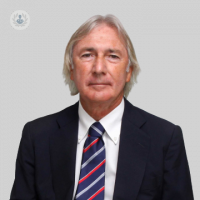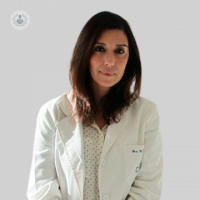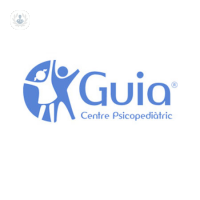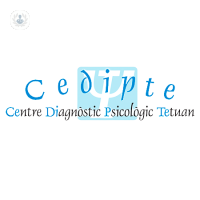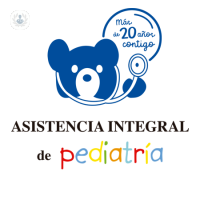There is talk of anxiety disorder when the reaction alert a person to a situation or event promptly stressful is disproportionate, excessive and persistent intensity over time, or when the reaction is triggered in situations that are only perceived as threatening by the person suffering from this disorder. Treatment for anxiety is mainly based on psychotherapy but the duration depends on each patient. The most common anxiety disorders and their symptoms are: generalized anxiety disorder, a permanent state of chronic stress on the subject suffers from excessive worry and nervousness even without apparent cause;the phobic disorder that causes the person an irrational and persistent fear of an object, activity or specific situation, causing their avoidance (eg, fear of flying );anxiety attack, recurrent crises of fear without any direct cause spontaneously, causing extreme anxiety with symptoms like palpitations, feeling of choking, trembling&hellip ;; obsessive-compulsive disorder, which are irrational ideas and actions that the patient can not fail to have or do to avoid suffering anxiety (eg, washing hands frequently with extreme fear of catching something);disorder and post-traumatic stress reactions, acute or post-traumatic stress, characterized by persistent memories, an emotional state of exaggerated surveillance and general reduction of interest in daily activities.
07-08-2013Anxiety
There is talk of anxiety disorder when the reaction alert a person to a situation or event promptly stressful is disproportionate, excessive and persistent intensity over time, or when the reaction is triggered in situations that are only perceived as threatening by the person suffering from this disorder. Treatment for anxiety is mainly based on psychotherapy but the duration depends on each patient. The most common anxiety disorders and their symptoms are: generalized anxiety disorder, a permanent state of chronic stress on the subject suffers from excessive worry and nervousness even without apparent cause;the phobic disorder that causes the person an irrational and persistent fear of an object, activity or specific situation, causing their avoidance (eg, fear of flying );anxiety attack, recurrent crises of fear without any direct cause spontaneously, causing extreme anxiety with symptoms like palpitations, feeling of choking, trembling&hellip ;; obsessive-compulsive disorder, which are irrational ideas and actions that the patient can not fail to have or do to avoid suffering anxiety (eg, washing hands frequently with extreme fear of catching something);disorder and post-traumatic stress reactions, acute or post-traumatic stress, characterized by persistent memories, an emotional state of exaggerated surveillance and general reduction of interest in daily activities.


Ansiedad social: ¿qué factores influyen y cómo se puede tratar?
By Paulino del Campo Redondo
2024-11-21
La ansiedad social empieza en la adolescencia, entre los 12 y 18 años. En este artículo Paulino del Campo, especialista en Psicología, explica qué factores influyen, el tratamiento y las habilidades sociales más importantes. See more


El sobrepensamiento: un disfraz de la ansiedad
By Carolina Narbón de la Villa
2024-11-21
El sobrepensamiento nos lleva a un bucle obsesivo. En este artículo Carolina Narbón, especialista en Psicología, explica qué es y por qué pensamos en exceso. See more


Rumia mental: preocupación excesiva por nuestro pasado, presente y futuro
By María Luisa Bresó Safont
2024-11-21
La rumia mental se traduce en un continuo "darle vueltas" a las cosas y vivencias, cosa que puede derivar en trastornos psicológicos más severos. La Sra. Bresó, psicóloga, explica cómo ponerle freno, detectar nuestras propias emociones y pensamientos, y conectar con aquello realmente importante See more


Ansiedad y depresión tras la ruptura con tu pareja
By Dra. Margarita Corominas Roso
2024-11-21
Las separaciones en muchas ocasiones generan una fuerte angustia y ansiedad, la cual suele incrementarse al salir fuera de la protección que ofrece nuestro hogar. See more
Experts in Anxiety
-
Dr. José Ángel Bueno
PsychiatryExpert in:
- Depression
- Anxiety
- Obsessive Compulsive Disorder
- Phobias
- Psychosomatic disorders
- Conduct Disorder
-
Blanca Bueno Julià-Capmany
PsychologyExpert in:
- Obsessive Compulsive Disorder
- Personality Disorders
- Anxiety
- Phobias
- Pulse Control
- Addiction
-
Marina Bassas Vivó
PsychologyExpert in:
- Self-esteem disorder
- Positive psychology
- Anxiety
- Homeopathy
- Quantum Scio
- Stress
-
Dr. Jordi Sasot Llevadot
Child & Adolescent PsychiatryExpert in:
- Anxiety
- Depression
- Conduct Disorder
- Autism
- ADHD
- Learning Disability
-
Gloria Giménez
PsychologyExpert in:
- Clinical Psychology
- Personality Disorders
- Anxiety
- Obsessive Compulsive Disorder
- Cognitive-behavioral therapies
- See all

Centre Psicopediàtric Guia
Centre Psicopediàtric Guia
C/ de la Marquesa de Vilallonga, 12
No existe teléfono en el centro.
By using the telephone number provided by TOP DOCTORS, you automatically agree to let us use your phone number for statistical and commercial purposes. For further information, read our Privacy Policy
Top Doctors

Cedipte-Psicología
Cedipte-Psicología
Plaza Tetuán, 26. 2º2ª, 08010, Barcelona
No existe teléfono en el centro.
By using the telephone number provided by TOP DOCTORS, you automatically agree to let us use your phone number for statistical and commercial purposes. For further information, read our Privacy Policy
Top Doctors

Asistencia Integral de Pediatría
Asistencia Integral de Pediatría
Calle Progreso, 39
No existe teléfono en el centro.
By using the telephone number provided by TOP DOCTORS, you automatically agree to let us use your phone number for statistical and commercial purposes. For further information, read our Privacy Policy
Top Doctors
-
Centre Psicopediàtric Guia
C/ de la Marquesa de Vilallonga, 12, BarcelonaExpert in:
- Child Psychology
- Child Psychiatry
-
Cedipte-Psicología
Plaza Tetuán, 26. 2º2ª, 08010, Barcelona, BarcelonaExpert in:
- Anxiety
- Depression
- Psychology
-
- Most viewed diseases, medical tests, and treatments
- Ozone therapy
- Genitourinary syndrome of menopause (GSM)
- vaginal dryness
- Hormonal health
- Bioidentical hormones
- Perimenopause
- Menopause
- Deformities
- Ankle
- Pie
